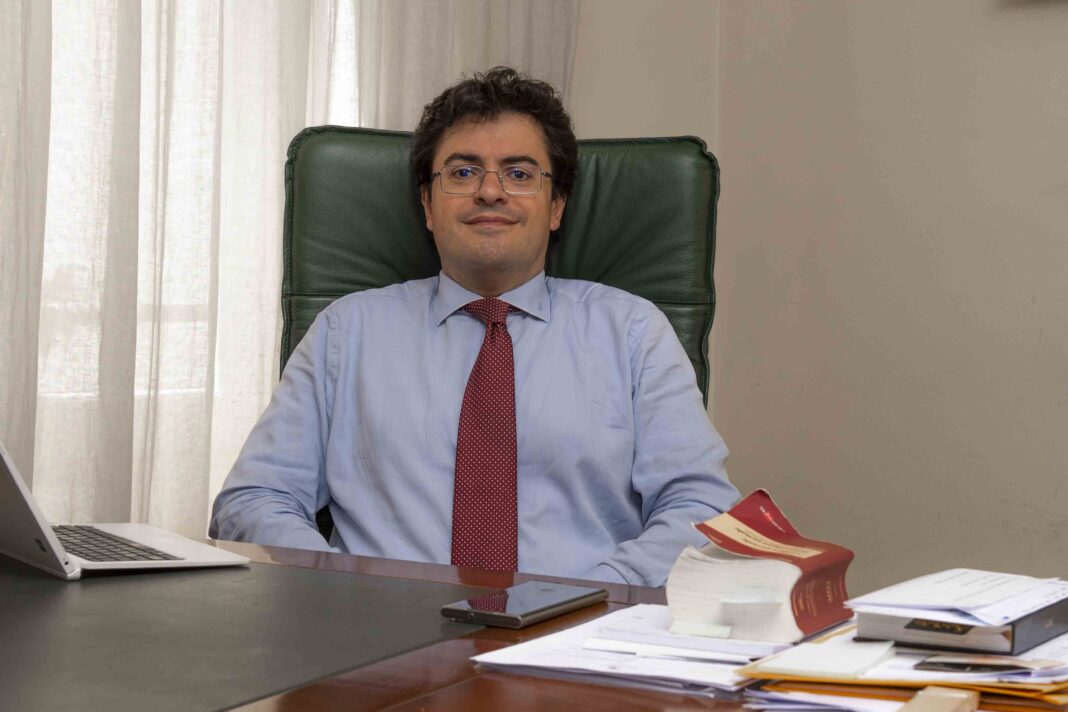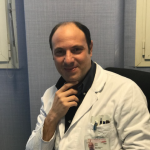Alessandro Vallese, born in 1978, is not only a well-known criminal lawyer (he graduated in Law in 2002 from the Università Cattolica del Sacro Cuore in Milan) but also a former opera singer (a passion that he cultivated until about ten years ago in parallel with his professional practice). At the apex of a 20-year collaboration with lawyer Lorenzo Crippa, in June 2020 he set up the Crippa Vallese law firm, which is highly specialised in bankruptcy criminal law, tax criminal law, labour criminal law and juvenile criminal law.
by Roberta Imbimbo
Mr Vallese, one of the biggest problems that grips corporate criminal law today is that of the depersonalisation of the defence (your aim is therefore to re-personalise it). What can you tell us about this?
There are charges for even very serious offences that have become almost automatic today. For example, when, as part of the control activities carried out by the Revenue Agency, it considers that it has identified conduct of criminal relevance, it forwards the crime report to the Public Prosecutor’s Office. This same crime report, more often than not, automatically generates charges – such as fraudulent misrepresentation by means of other artifices, punished by imprisonment of three to eight years, and money laundering, punished by four to 12 years – with the application of precautionary measures, such as the seizure of the profit of the crime. In many cases, the latter precautionary measure results in a blocking of the company’s activities (which cannot, in abstract terms, be considered a third party extraneous to the crime since it has benefited from the profit of the offence committed by its legal representative) and in a total paralysis of entrepreneurial life. The preventive seizure of company assets is in fact a costly measure for those subjected to it, who often see themselves deprived of their economic resources and destined, in prospect, to bankruptcy, even before a final sentence of conviction is passed, and therefore on the basis of mere presumptions of crime and not unequivocal evidence of the accusation. This is a great anomaly considering that, in the criminal trial, unlike the tax trial, presumptions, although they may have circumstantial value, cannot in themselves constitute a source of proof of the commission of the offence, taking on the value of factual data that must be freely assessed by the criminal Judge together with corroborating elements that give certainty to the existence of the criminal conduct. This is because in criminal proceedings the aim is obviously not to ascertain the quantum evaded, but whether or not the defendant was guilty of unlawful conduct beyond reasonable doubt. The Supreme Court has, moreover, repeatedly intervened on the subject, expressing the principle of law according to which the criminal court may legitimately have recourse to the assessments carried out by the Tax Administration also for the purpose of determining the amount of the tax evaded, which, however, have the value of circumstantial elements, which must be confirmed by other probative elements or other serious, precise and concordant tax presumptions in order to be considered as evidence.
In light of this operational framework, what do you hope for?
I firmly believe that more than a reform of the law – the Cartabia Reform, strongly advocated by the Draghi government to speed up criminal trials, recently came into force – we need a radical cultural and mental change. Today, not only have many tax offences been tightened up and the statute of limitations lengthened, but also, and above all, sentences are easily passed for facts that sometimes do not even constitute a crime. When instead it would suffice to observe them with a little serenity, freeing oneself from these dangerous presumptive automatisms and always demanding investigation and proof beyond reasonable doubt. One cannot and should not condemn on the basis of mere presumptions.
For these reasons, it is extremely important to turn to experienced professionals who know how to assert their clients’ claims in court. What are the strengths of the Crippa Vallese law firm?
The firm is highly qualified in providing legal assistance in criminal proceedings, in particular for tax offences: from the Guardia di Finanza’s objections to the precautionary measures applied by the Public Prosecutor’s Office to criminal proceedings for tax offences, our prerogative is to follow the client at 360 degrees, and to create solid and trusting relationships with each individual assisted, which has always been the focus of our professional activities. In fact, our aim is to personally take care of his needs in every detail, offering quick, precise and punctual answers (the notice of guarantee, the search decree, the preventive seizure, the precautionary custody have an urgency by law since the times are dictated by the code). Our main strength is therefore to assist the client throughout the entire criminal trial phase by assessing and preparing the best possible defence strategy, having the ability to foresee what may happen during the trial (thanks to the experience gained over many years of activity, we are able to foresee the developments of a particular court case). This is a very important feature that has allowed us to significantly increase our client base throughout the country, where we are fully operational thanks to valuable partnerships that have been established for years.























































